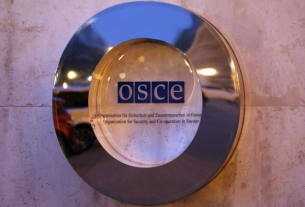France remains a top destination for higher education. According to Campus France, 412,087 foreign students enrolled in French institutions for the 2022-2023 academic year – a 3% increase from the previous year and a 17% rise over five years. They represent 14% of students enrolled in higher education. Although France still ranks 6th among host countries, global mobility is growing faster than mobility to France.
While universities host the majority of foreign students (64%), business schools have seen the most robust growth: an 80% surge over the past five years. Students from Asia and Oceania are particularly drawn to French business schools, representing 27% of international enrollments. What’s more, 82% of students of foreign nationality enrolled in business schools are on international mobility programs, most of them leading to a degree.
A recent study commissioned by the Conférence des Directeurs des Écoles Françaises de Management (CDEFM) and conducted by the Edhec NewGen Talent Centre delves into the profiles and aspirations of international students at major business schools. Unveiled at the “Responsible Student Mobility and the Employability of International Students” conference, the study surveyed over 2,000 students from 118 nationalities, revealing diverse motivations and ambitions that set these students apart. Here are five reasons why international students are a vital asset for French companies.
A pool of diverse talent with an interest in France
International students offer a wide range of skills. For instance, many students from Asia and North America come to France with engineering degrees, often adding a master’s from a French management school. Meanwhile, over a third of students from Africa and the Middle East have backgrounds in economics, accounting, auditing, or finance. This diversity provides French companies with a valuable talent pool, particularly for hard-to-fill roles.
Additionally, 22% of international students already have experience in France before attending management school. On average, they stay for 16 months – ample time to acclimate and boost their French skills, even though most courses at top schools are taught in English. Having lived and worked with peers from numerous countries, 84% feel equipped with the intercultural skills needed for a global career. When choosing a location, three-quarters of these students prefer Europe.
Aligned with modern corporate values
International students view the corporate world much like their French counterparts: as an exciting, collaborative, but also complex and sometimes stressful environment. A striking 90% believe companies play a crucial role in tackling global challenges, pushing for transformation in environmental impact, social responsibility, and ethical governance.
Their sector preferences align with French students too, with 76% saying their studies raised their awareness of social issues, preparing them for today’s corporate challenges. Additionally, 66% state that a company’s societal impact will heavily shape their career choices. While they share similar views on company size, international students show a stronger interest in salaried roles and cooperative companies.
Ambitious, independent, and committed
International students aspire to develop their skills, achieve high incomes, and pursue diverse career ambitions. The Edhec study identified three primary profiles among these students: competitors, focused on ambitious career paths and managerial positions; Committers, driven by global issues and company culture; and entrepreneurs, motivated by innovation, freedom, and project management.
Among international students, competitive and entrepreneurial profiles are more prevalent than the committed ones, which are more common in France and North America.
Adaptability, responsibility, and collaboration are the top skills international students excel in. They look for managers who are transparent, honest, and supportive, fostering their growth through trust and autonomy. A strong 76% feel confident about entering the job market, bringing enthusiasm and motivation – traits sure to attract future employers.
French businesses have often hesitated to hire international graduates, partly due to unfamiliarity with their background and the complexities of hiring non-European nationals. However, France’s business schools believe in the value of these graduates and actively promote their integration into the workforce to benefit the French economy.
French businesses have long hesitated to hire international graduates, often due to unfamiliarity and the complexities of hiring non-EU nationals. Yet, France’s business schools see their value and actively push for their integration into the workforce to boost the economy.
To ease this process, the (CDEFM recently released a practical guide to help companies navigate the administrative hurdles of hiring international talent.



